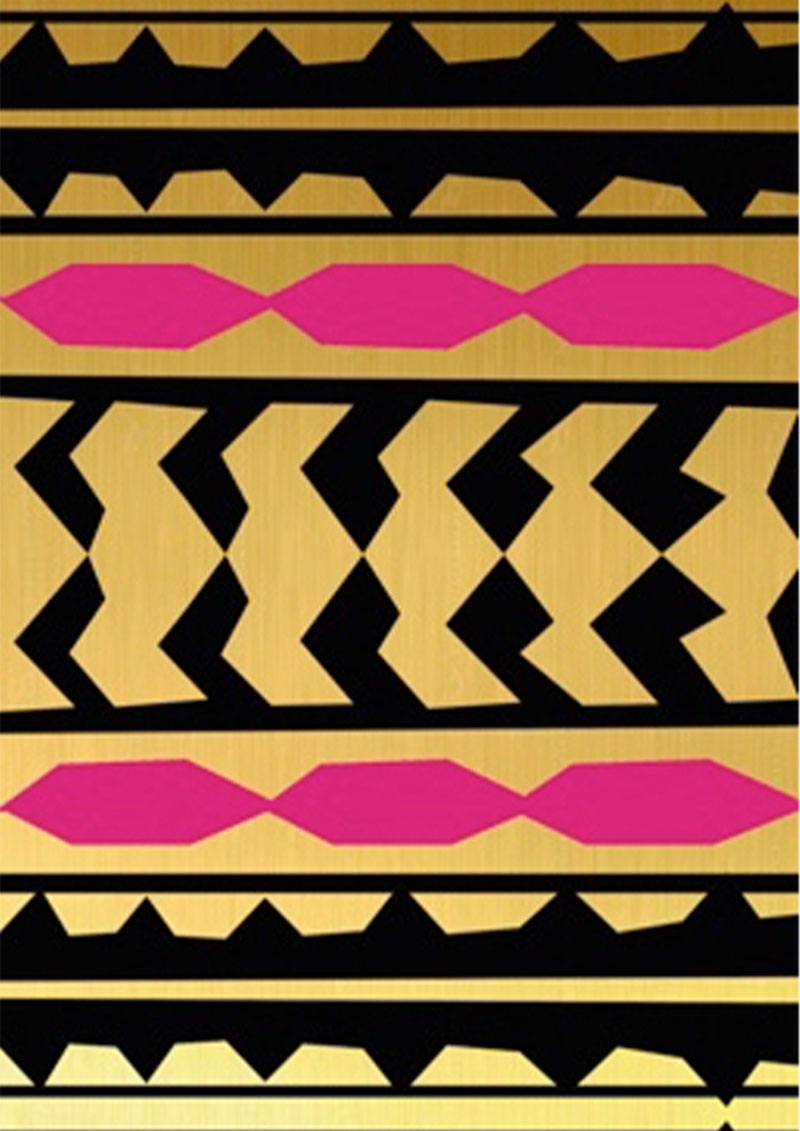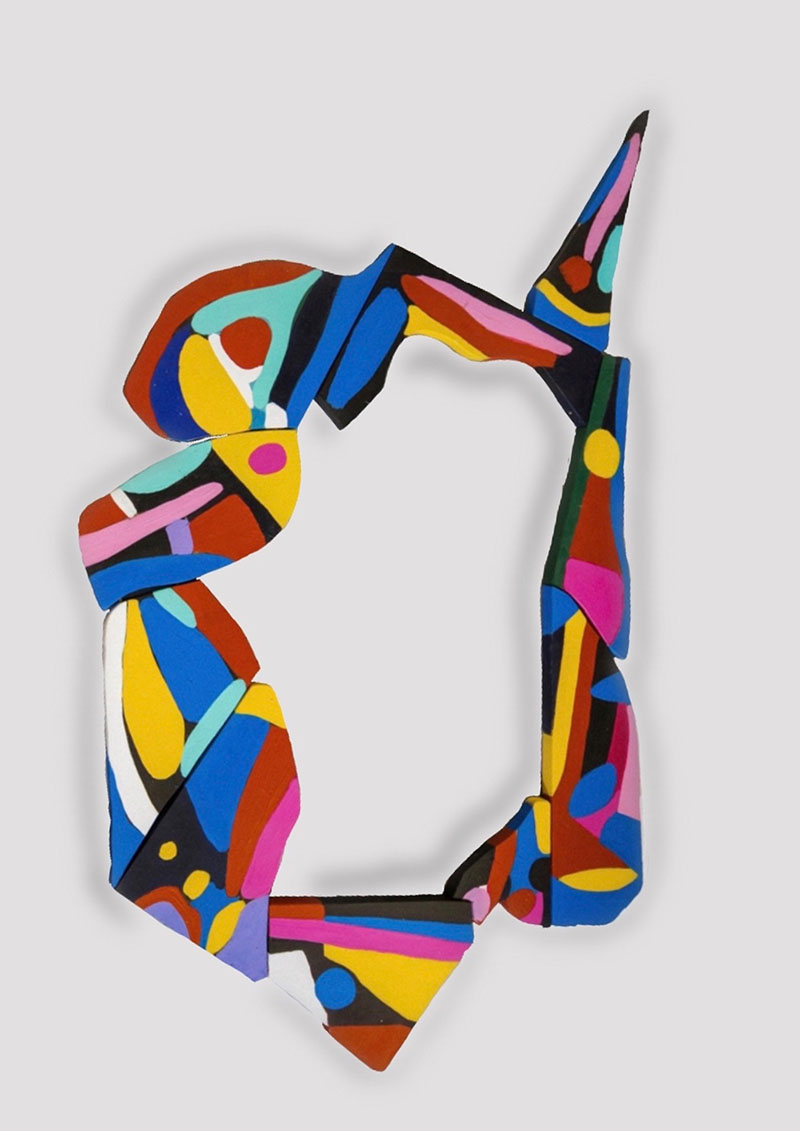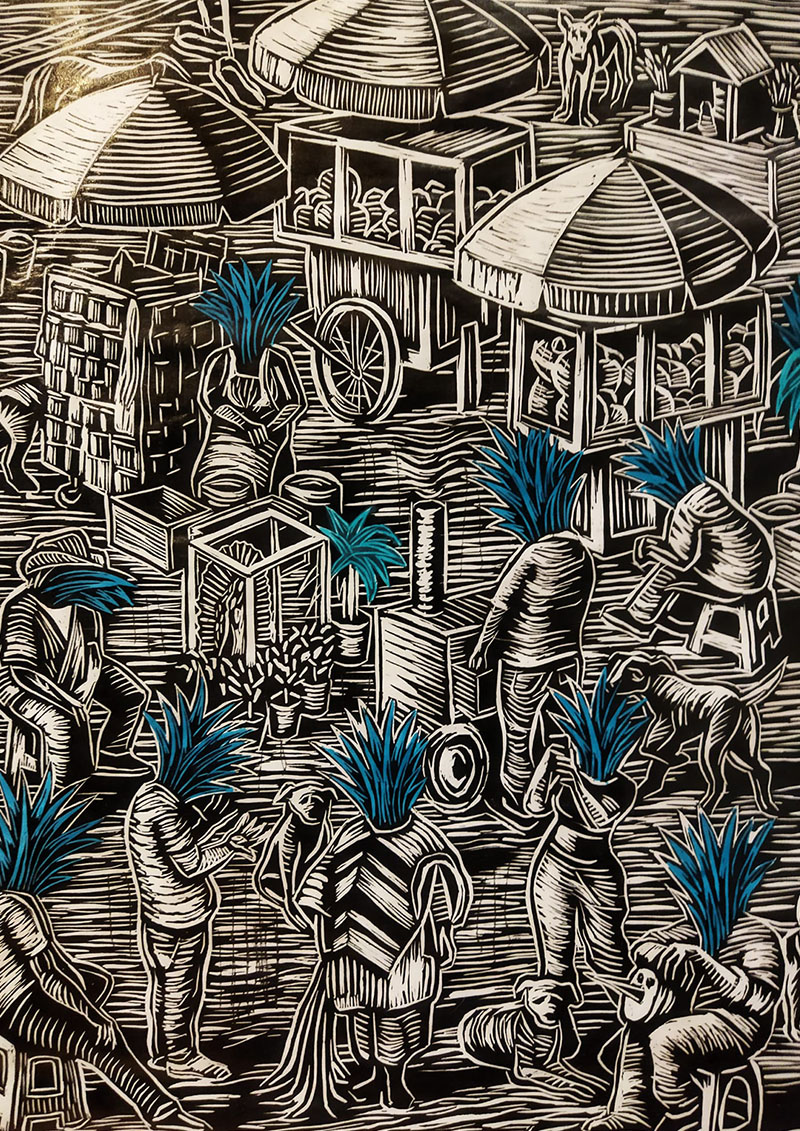TUESDAY, JUNE 15.
INAUGURATION - 19:00 - 21:00- Civivox Condestable
INAUGURATION - 19:00 - 21:00- Civivox Condestable
Mikel Belascoain, artistic director Filmmaking for Social Change.
The Festival opens this edition for the second consecutive year, with the works made by students of the Pamplona Film School and the selection of works from the project "Cairo in Motion", a project carried out in Egypt, in collaboration with the London Documentary Film Festival. All the projects have been carried out from September 2022 to June 2023 around this year's theme.
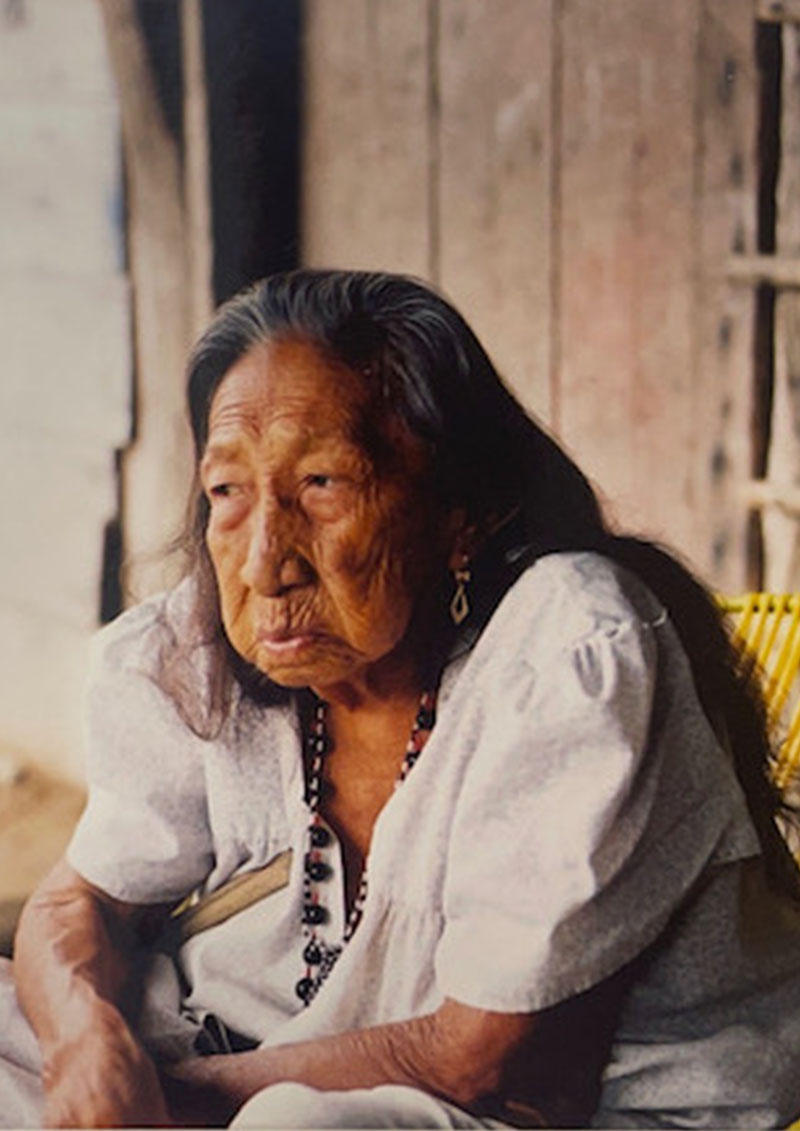
The subjective vision of an anthropologist about the indigenous Wanai / Mapoyo people of the Venezuelan Amazon, who for millennia have occupied these lands; red lands, very red due to the presence of iron oxides and bauxite. Lands where they also sleep blackened granite masses from which the ancestors of the Mapoyo people emerged and where they return to give themselves in their last sleep.

A selection of short films from the project "Cairo in Motion" made in London and Egypt in collaboration with the London International Documentary Festival and the British University in Egypt. The films are framed within the theme "Everyday Rituals".
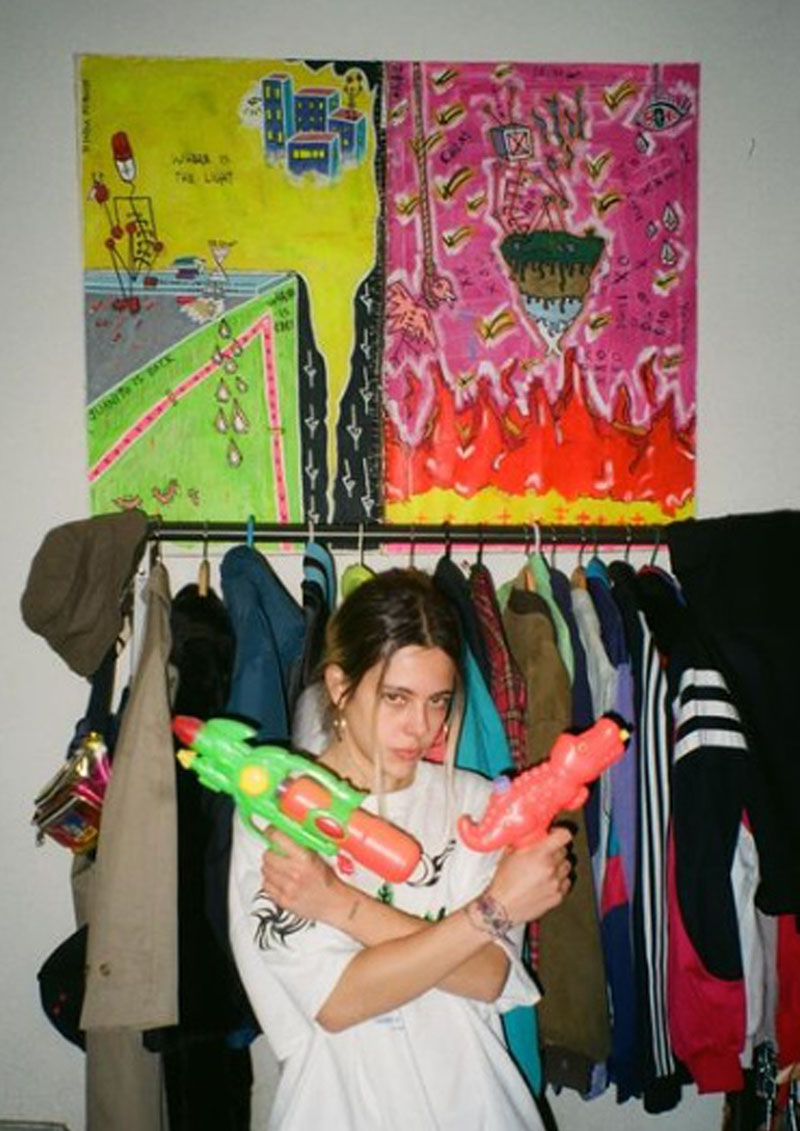
Every year the Fábrica de Arte Nuevo proposes to different artists to reflect on the theme of the festival from different perspectives. The artists Ana S. Holmes, Monika Aranda and Iosu Zapata will join us in the hall to show us their proposals and installations created for this edition of the festival, which can be visited at Civivox Condestable until June 25.
Free admission until full capacity is reached
WAPIKONI MOBILE, AN INDIGENOUS EXPERIENCE OF CINEMATOGRAPHIC CREATION. 19:00 - 21:00 - Civivox Condestable
Conference curated by Beatriz Bermúdez R. of the Anthropology Association ARAKADIA-Antroplogia Elkartea (arakadia.org). Beatriz is a Venezuelan anthropologist and filmmaker who has been working with indigenous organizations since 1978. In this opportunity she will participate, together with one of the responsible of Wapikoni, in a round table moderated by Txuri Ollo from Arakadia, which will take place at the end of the video projection.
The day focuses on a retrospective of the work developed by Wapikoni Mobile, a Montreal-based NGO founded in 2004 by filmmaker Manon Barbeau, the Atikamekw Nation Council and the First Nations Youth Council. Wapikoni is a mediation, intervention, training and audiovisual creation organization for indigenous youth with the goal of supporting ethnic reaffirmation processes and counteracting high rates of school dropout, substance abuse and suicide. A total of 9 short films will be shown that address the theme of rituals and other aspects from different points of view and in different countries. Some of these films have been awarded or selected in other festivals such as Sundance, Sao Paulo or Raindance and will show us the richness and variety of indigenous cultures.
Collective realization
The production gathers the opinion of the indigenous and peasants of the Bayamo region in Panama on discrimination and how it affects them.
Production and narration: Réal Junior Leblanc.
In March 2012, a group of Innu activists blocked Route 138 in protest. The film, shot among the demonstrators by indigenous filmmaker Réal Junior Leblanc, offers a privileged look at the events that shook public opinion at the time.
Realization: Marie-Christine Petiquay
The Atikamekw people are part of the First Nations or First Nations of Canada. Their language is part of the Algic linguistic family, very extended in North America and according to some studies they lived with Basque whalers between the years 1545 and 1585, as a proof of it there is a Basque Algonquian pidgin. They live in Quebec, north of Montreal, where they have created a cultural pedagogical project called Mataka, for the transmission of their knowledge and traditional culture. The video was shot over three years during which the filmmaker, supported by the Wapikoni team, accompanied the project's camps in the community of Manawan.
Collective production with the Mapuche Film and Communication School.
Listening to nature is part of the education and communication processes of the Mapuche people. For this reason they perform the jejipun, a ritual instance in which the people who participate seek to restore harmony and cultivate reciprocity, peace and general welfare in order to resist and protect the land from the transgressions it suffers today.
Director: Rebecca Thomassi.
Rebecca, a woman of the Inuit nation and mother of a baby girl, walks through the community of Kangirsuk to learn from a connoisseur of her culture, the Inuktitut words by which her people recognize the different types of snow. Are they as many as they say?
Realization Robbie Tait Jr. Robbie.
Robbie Tait Jr. Robbie is the son of a soldier from the indigenous Listuguj nation of Mi'kmaq descent, to which his mother belongs. After living in Montreal where he was born, he decided to start an art project about his culture. The story of her grandmother's escape from Catholic boarding school and her mother's desire to be reunited with her lost culture shaped her vision of the world, a focal point of her art. Among her projects she shows us Rainbow Tears, inspired by a story about Leonard Peltier, the indigenous political prisoner that the U.S. government has kept incarcerated since 1976.
Realization by Ulivia Uviluk.
An introductory immersion into the linguistic continuum of Inuit languages beyond Canada, as well as the various identity struggles that arise from the precarious situation in which these languages find themselves today, continually crushed by the dominant colonial languages. This short film addresses the linguistic reality of Inuit youth who have been educated in English or French and who now face the challenge of trying to relearn their own languages in order to re-appropriate their own cultures.
This collective realization shows us the impacts that deforestation has on the indigenous territories of the Guna and Emberá peoples.
Realized by Eva Kaukai and Manon Chamberland, who in their small and secluded village of Kangirsuk, in northern Quebec, practice the Inuit art of throat singing. Their beautiful voices convey the deep feelings of the people of Nunavut, their Arctic homeland.
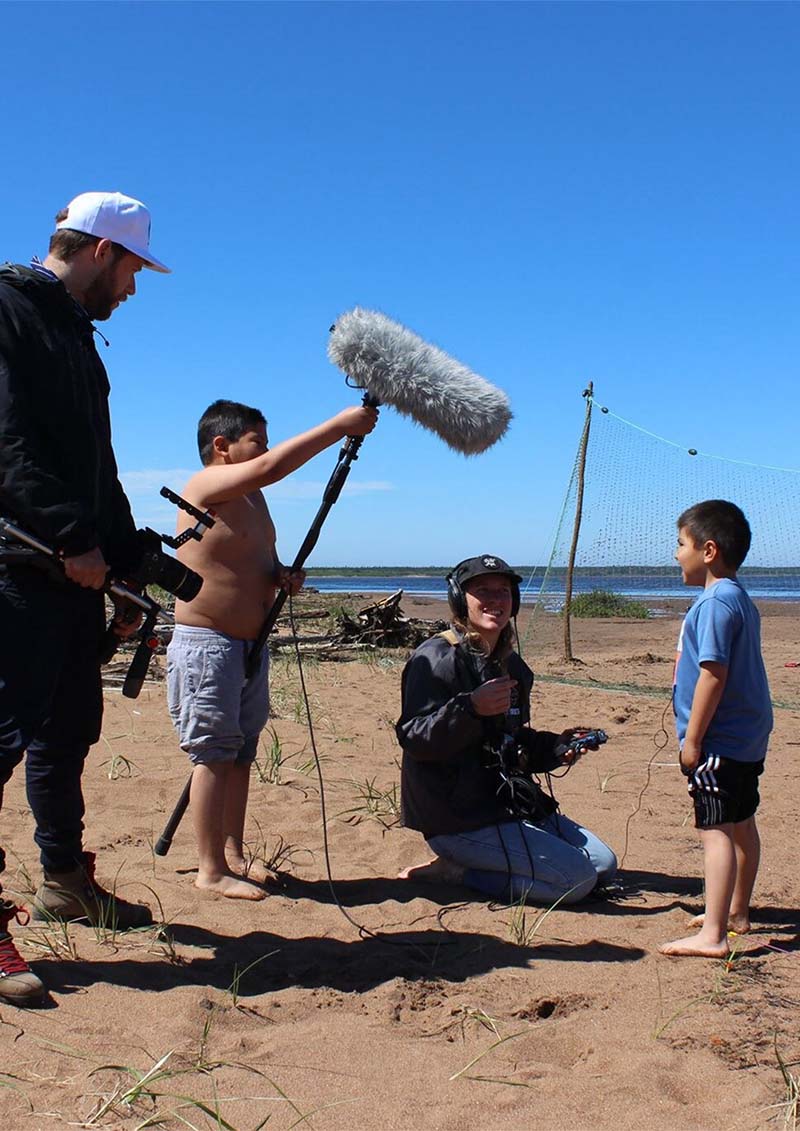

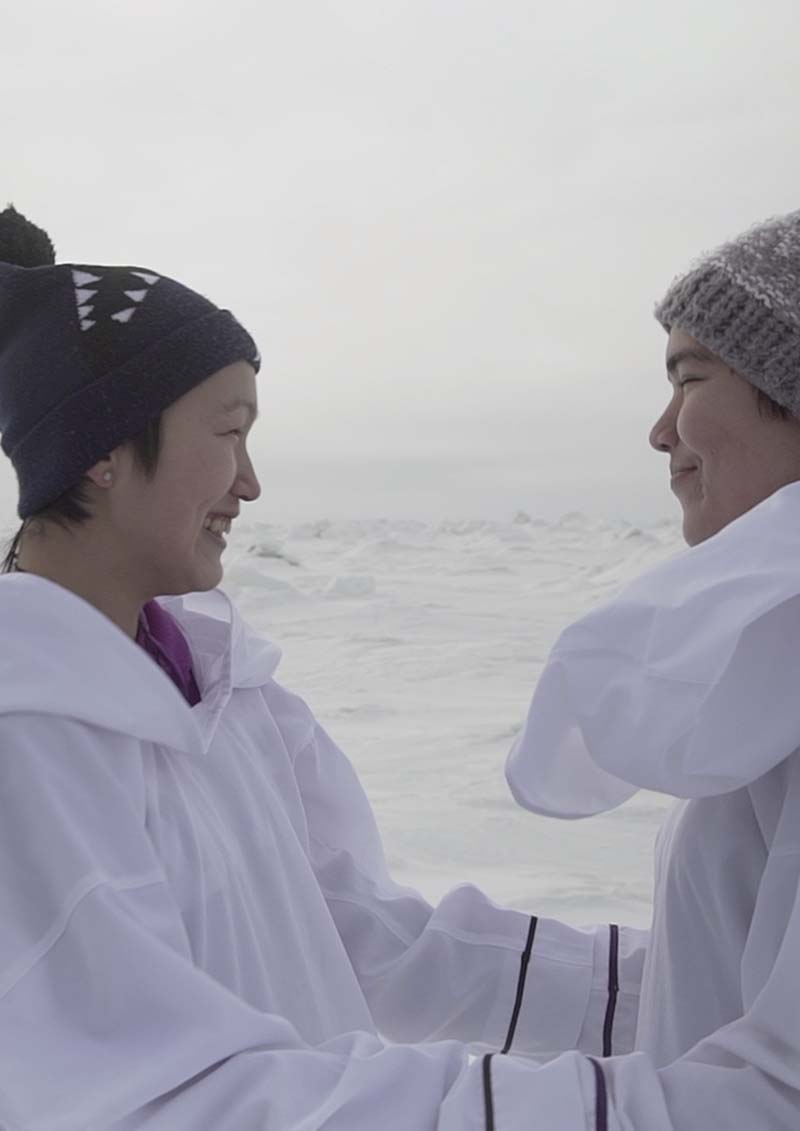
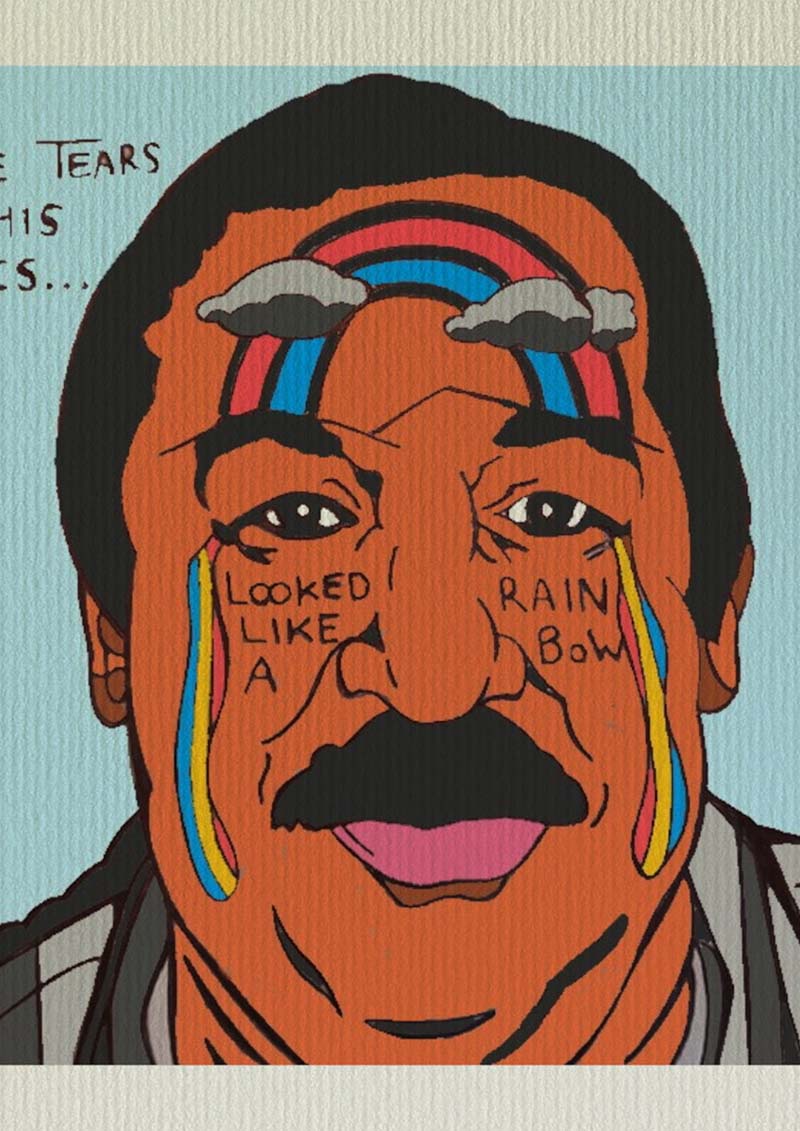
Free admission until full capacity is reached
INTERNATIONAL SELECTION 19:00 21:30 - Civivox Condestable
We present an international selection of short films that address the theme of the festival from very different points of view. We highlight the presence of Isabel Ferreira, contemporary art curator and director of the Arbola project and Patrick Hazard, anthropologist, director of the London International Documentary Festival and co-director of Filmmaking for Social Change.
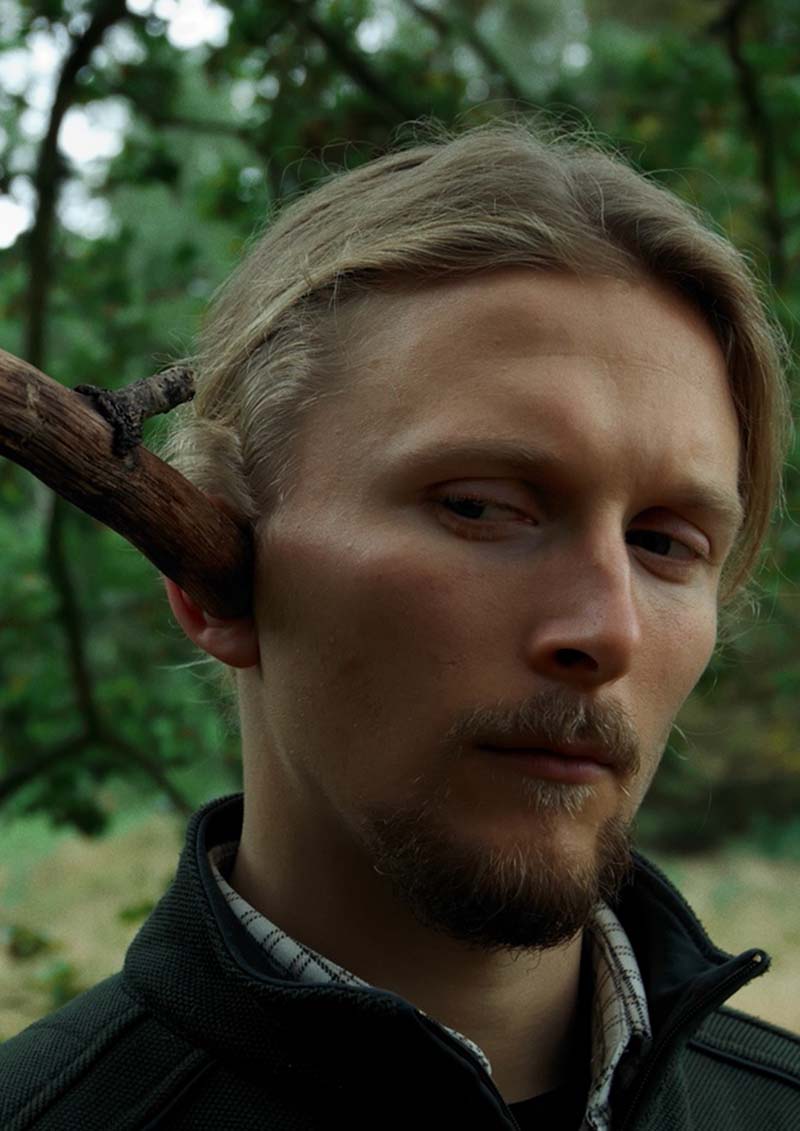
Materia Bosque is a project that brings together more than forty video creations that celebrate the poetic force of trees and the forest. Isabel Ferreira brings to the festival one of the audiovisual works of this project and enables a space for reflection on forests and their ancestral relationship with humans.
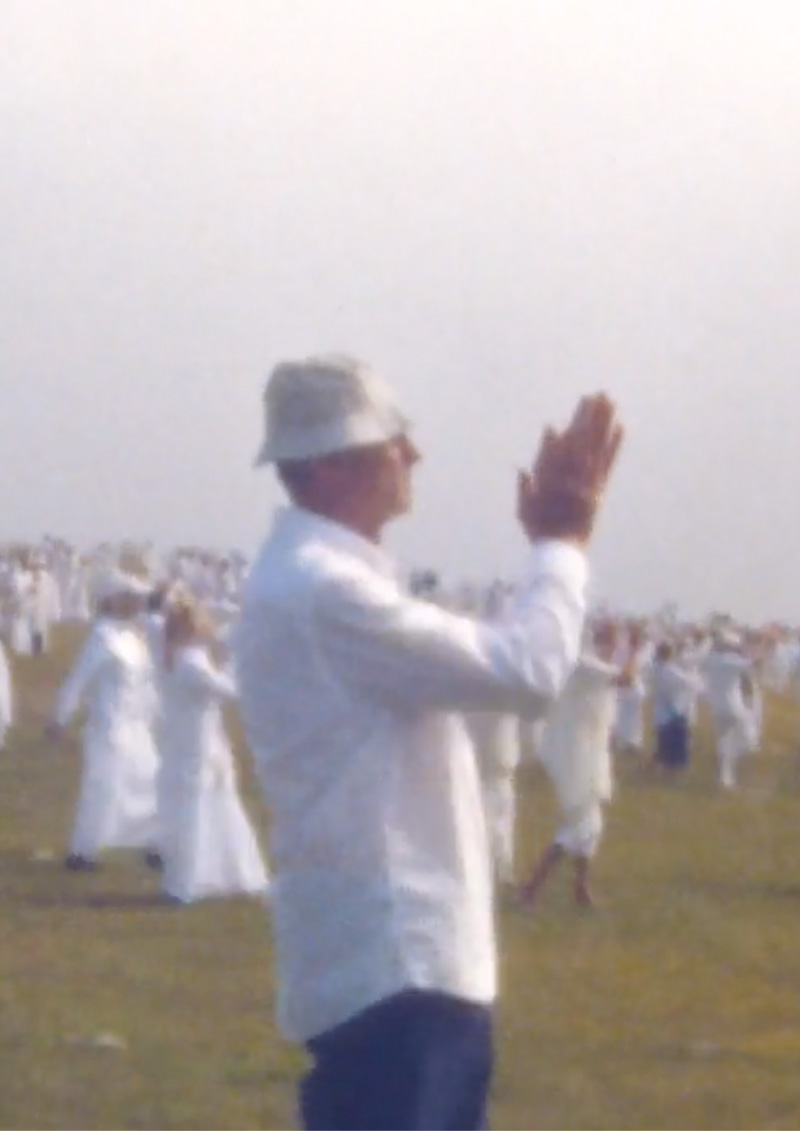
A film that evolves between the documentary genre and visual storytelling. Alternating archival material with new footage, this work offers a unique vision of the peaceful and sublime ways of the Universal White Brotherhood.
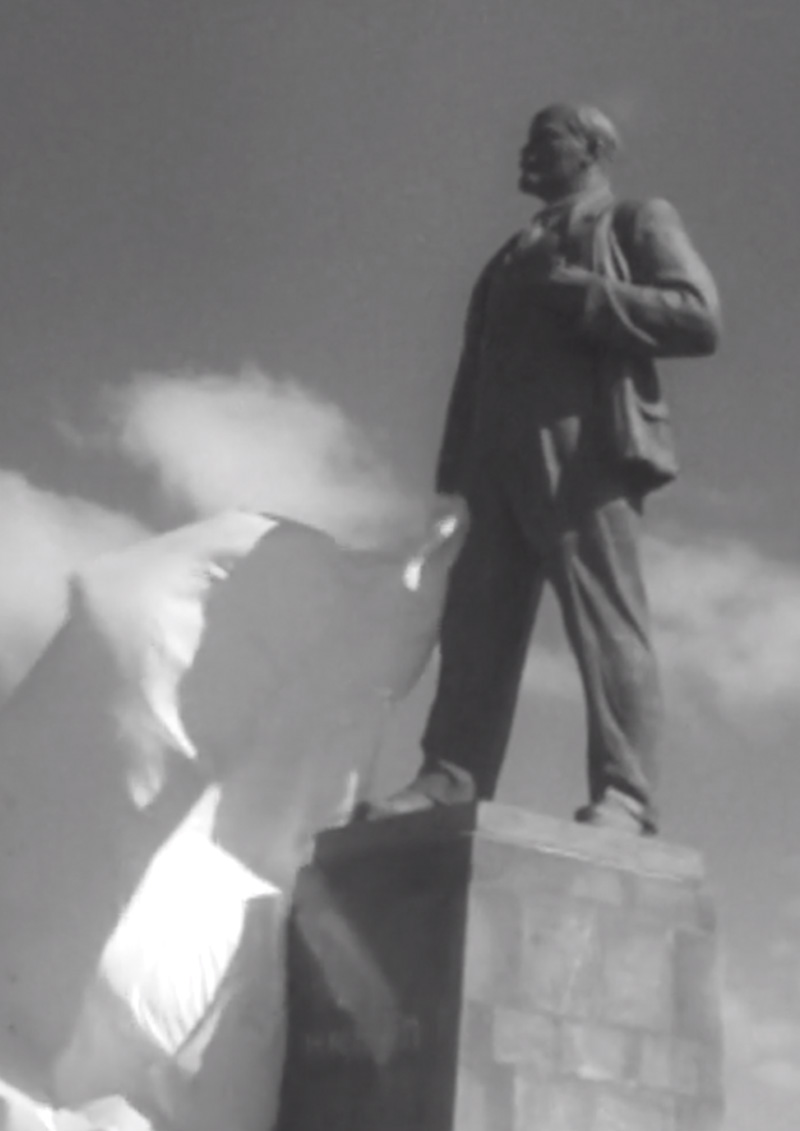
The key figure of the Great October Socialist Revolution of 1917 in Russia was Lenin. After his death in 1924, Lenin's image was immortalized on countless monuments in the Soviet Union and Soviet bloc countries. The "birth" of each new Lenin sculpture is accompanied by a special ritual with speeches and festivities before a large assembly. After the collapse of the Soviet Union, the life cycle of the "stone guest" is coming to an end. This film uses the materials of the Russian State Archive of Photography and Documentary Film (RGAKFD).
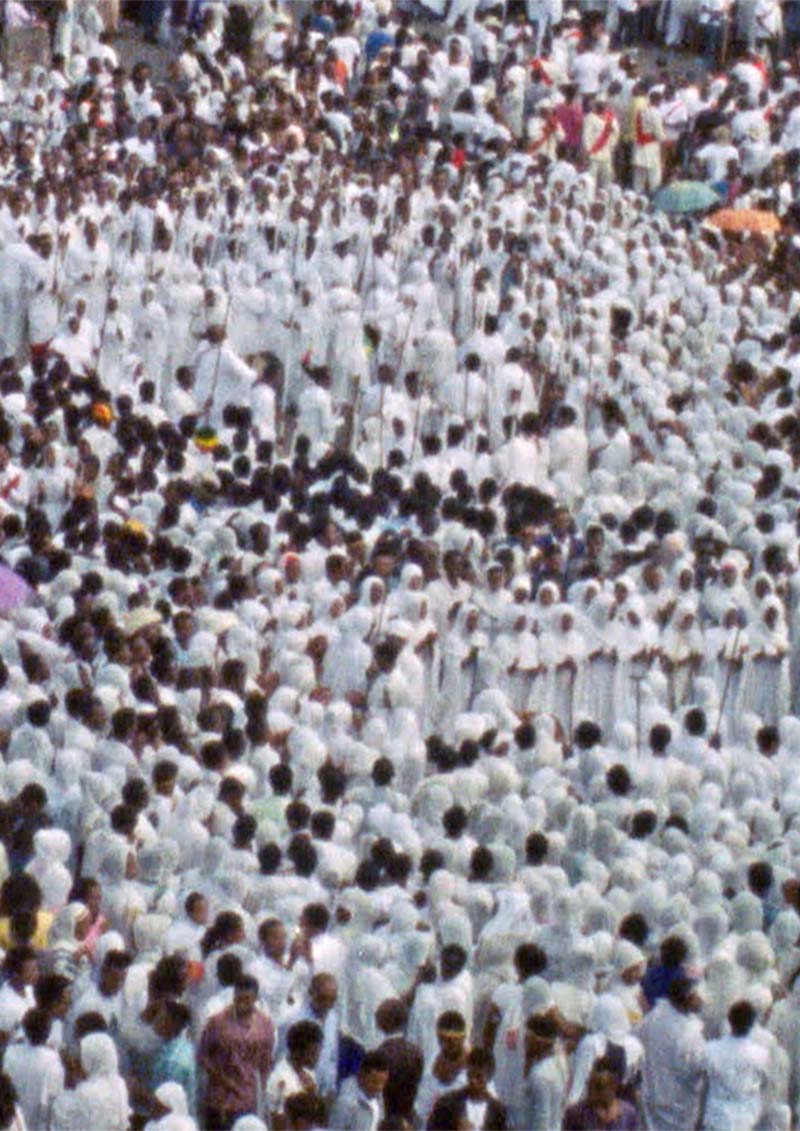
Timkat is a celebration to commemorate the baptism of Christ in the Jordan River to save all mankind. Those who are not baptized every year will not be able to reach the kingdom of heaven.
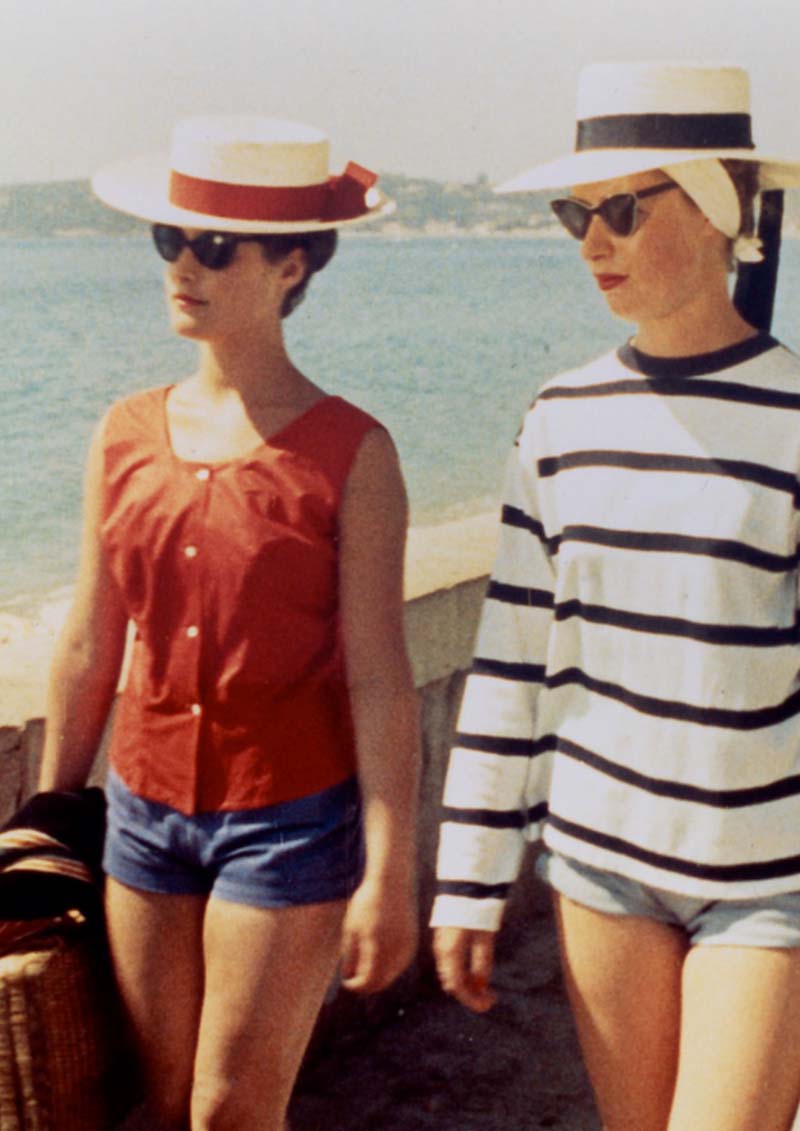
A summer stroll along the Côte d'Azur. The beautiful, brightly colored photography paints an idyllic picture of the French Mediterranean, while the scathing narrative describes its history, its festivals and its inhabitants.
Free admission until full capacity is reached
CINEMA FOR SOCIAL CHANGE and CELEBRATE THE WEIRD - 19:00 - 21:00 - Civivox Condestable
We dedicate this day to the heart of Filmmaking for Social Change. Collectives and people forgotten by the passing of time and projects that give voice to our most human nature: The tribe of the miserable. People affected by war, violence, misfortune. Projects that transcend labels and allow us to observe the world in a different way. We program two premieres in Navarra of social avant-garde cinema with the presence of the filmmakers Joaquim Torrents and Natxo Leuza. We will also be accompanied by Manuela Valchatova and Raúl Goñi, professors of Elisava, Escuela Universitaria de Diseño de Barcelona, with whom we will perform a performance that will close the artistic program in Condestable.
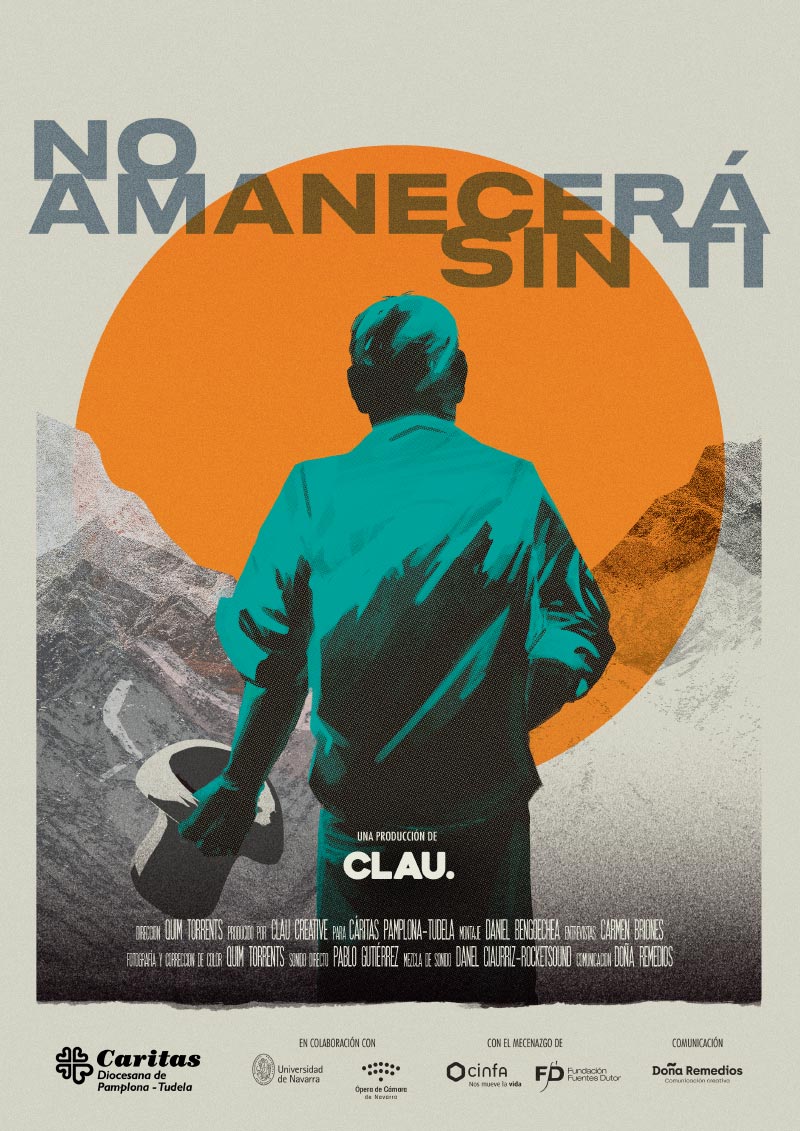
Quim Torrents is a filmmaker and founding partner of Clau Creative Services, an audiovisual production company from Navarre. He presents his new work "No Amanecerá Sin Ti", a documentary feature film starring people in a situation of social exclusion.
The representation of a musical based on Les Miserables serves as a guiding thread, with special emphasis on working from the capacity of people and not from necessity. What started as a simple recording of workshops and training classes in props, costumes, makeup, chorus, etc. has ended up becoming a 53′ piece that shows the enthusiasm and effort of all Caritas users and volunteers. An example of the transforming power of culture and the arts.
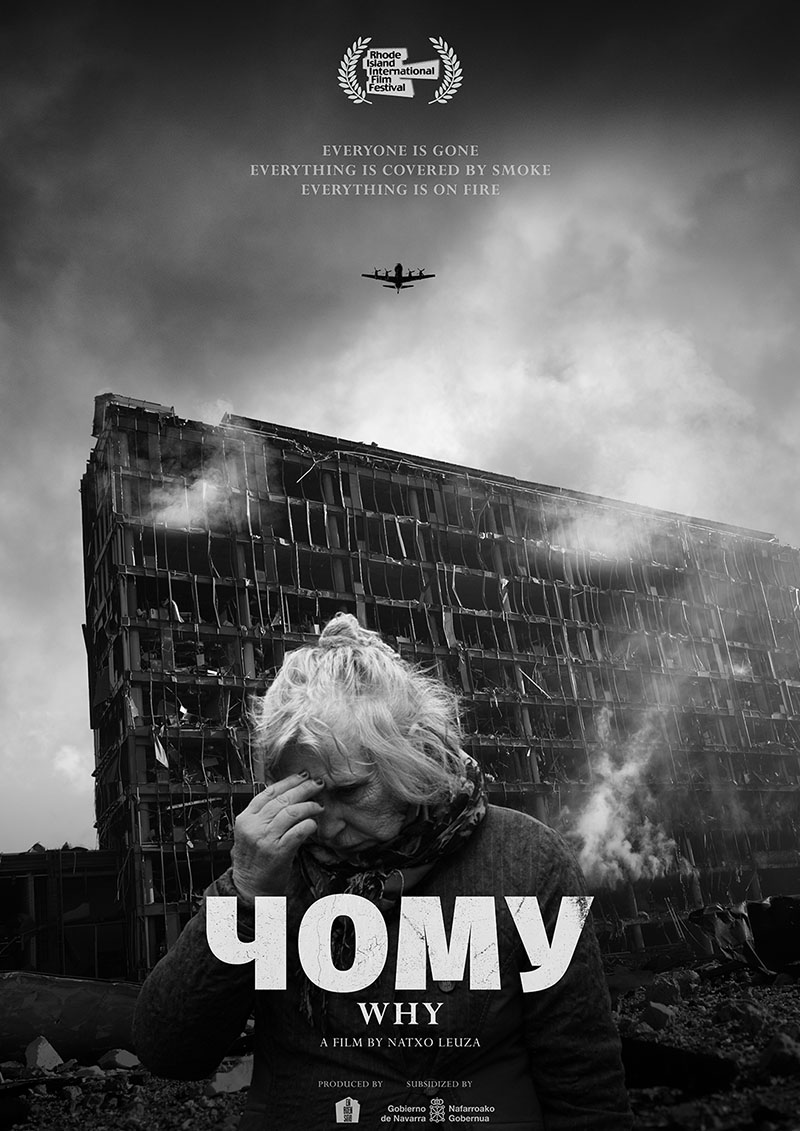
Why this war? Why are they shooting at us? Why are they destroying everything? Why am I afraid? Why do they want to kill us? Why so much hatred? Why are they killing our children? Why are they taking everything from us? Why do I have to run away? Why do we need to be liberated and rescued? Why has someone decided to erase everything?
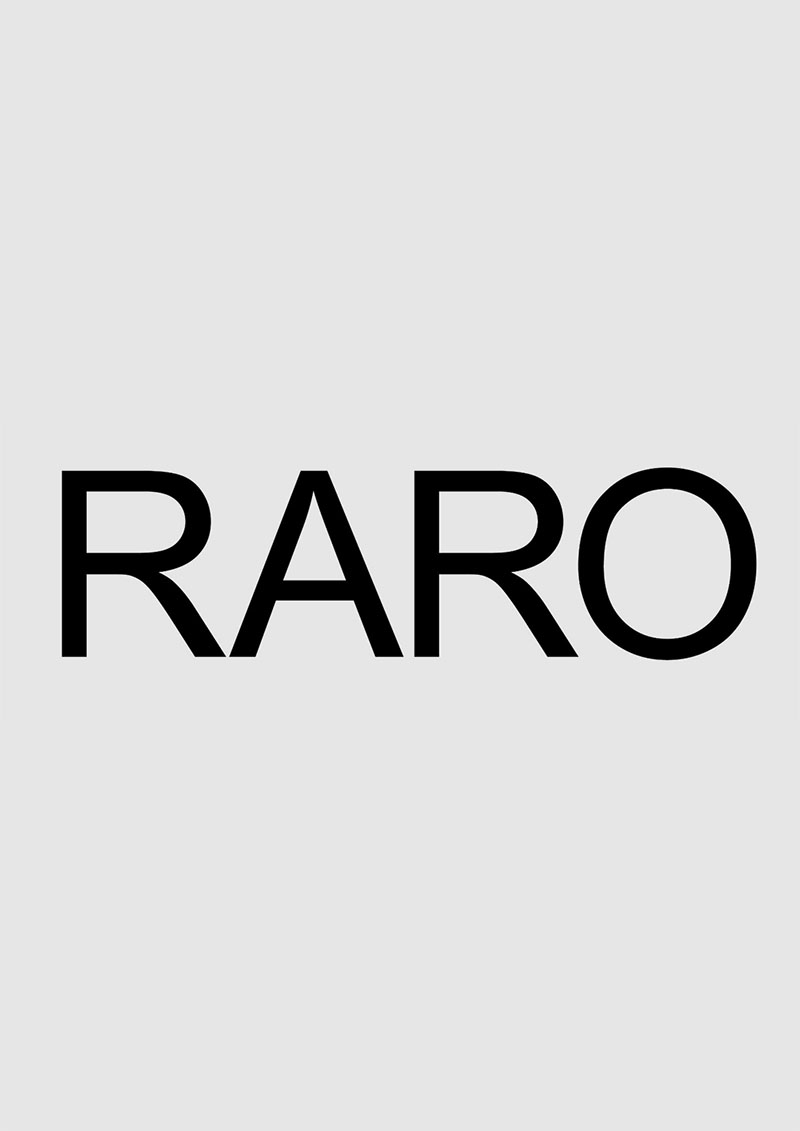
Celebrating the weird is a collective ritual, which turns hedonism into a practice of resistance. The intervention consists of two acts: Act 1: My tribe, a short film, co-produced among 44 Gen Z teenagers in search of the definition of their own tribe, of their identity both individually and collectively; Act 2: The Procession of the Weird, a procession through the city and with the city, where they will dance, sing and transform the streets with the weirdness of each and every one who joins this improvised ritual and participated by different local associations. The aim is to inject the city with the strangeness that identifies us as human beings in order to question stereotypes in a festive way.
Free admission until full capacity is reached
MUSEUM OF NAVARRA - 19:00
We close another year of Filmmaking for Social Change at the Museum of Navarra with a day dedicated to light in the shadows. A form of aesthetic, physiophilosophical and curatorial positioning to position ourselves in a luminous vision of the world in a historical moment that could be described as profoundly dark and dystopian. The entire program starts from a dark, almost black background that shines at some point.
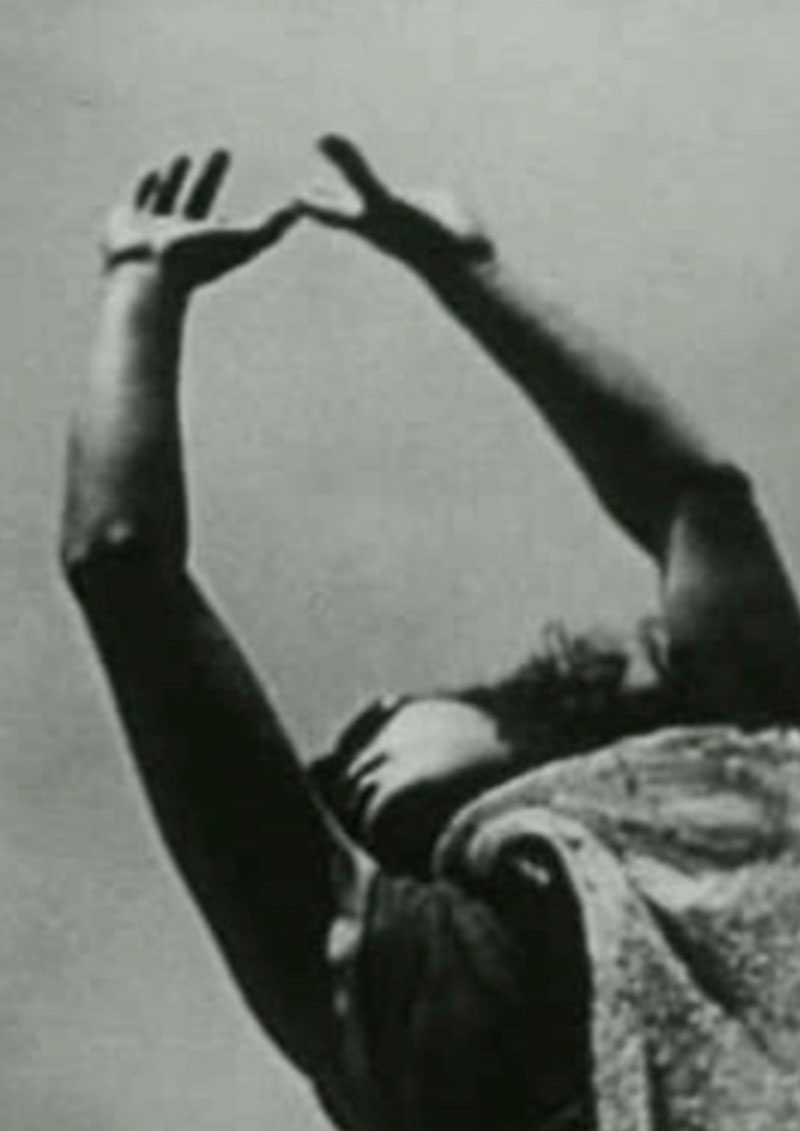
Silent film by Maya Deren, Ukrainian director, precursor of experimental cinema and essential to understand this genre. The film explores the use of dance with a mysterious costumbrism that raises ideas such as metamorphosis and anthropomorphism.
In addition, the silent film will be combined with the musical piece created for this edition of Filmmaking for Social Change by the North American artist Holly Miranda, who performs an experimental musical interpretation that dialogues with Maya Deren's film. Holly Miranda will explain the keys to the creation of her musical piece, created in collaboration with the New Art Factory.
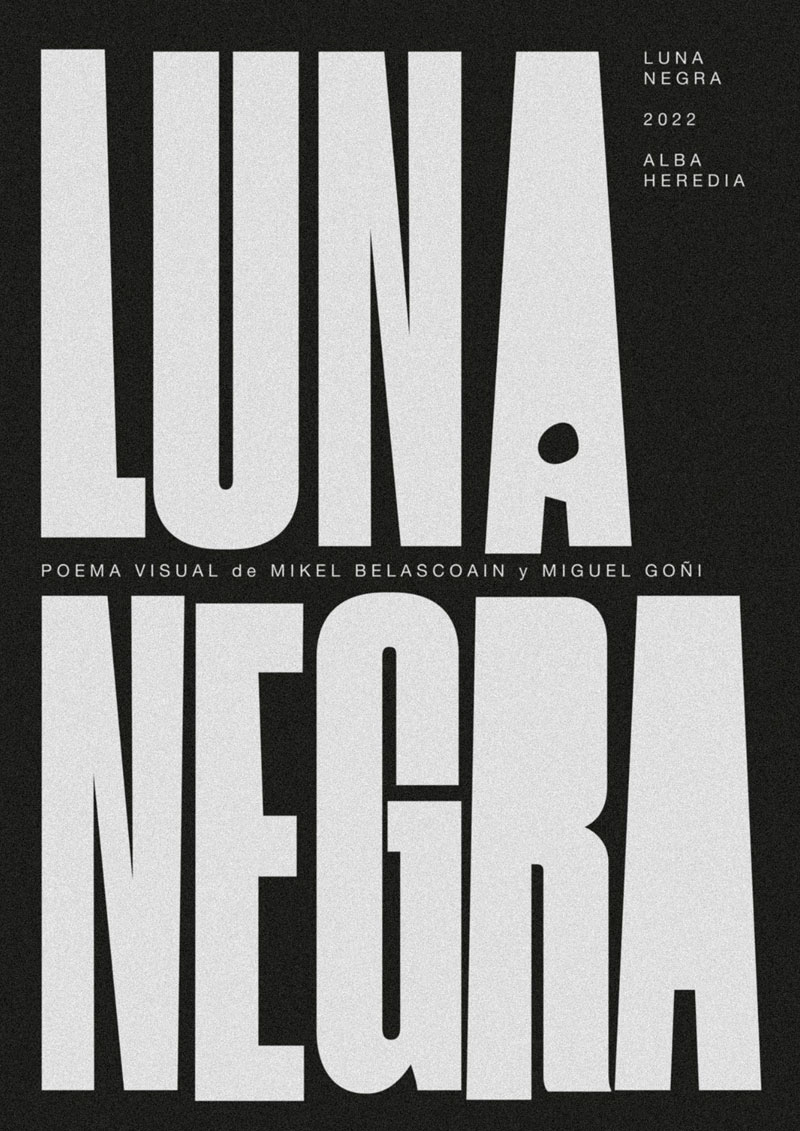
Luna Negra delves into the poetic and magical universe of Granada's flamenco, with the dancer Alba Heredia as the protagonist, to investigate the nature of the so-called "Duende flamenco". Throughout 3 years the directors Miguel Goñi and Mikel Belascoain have had access to fundamental milestones in Alba Heredia's life, such as her wedding, celebrated by the gypsy rite and the birth of her son. The dancer has also opened the doors to the secrets of her dance and the ancestral gypsy tradition of her family. The film, shot in black and white, is an experimental and poetic observational document of the roots of Flamenco, which finds great parallels in the poetry of Federico García Lorca.
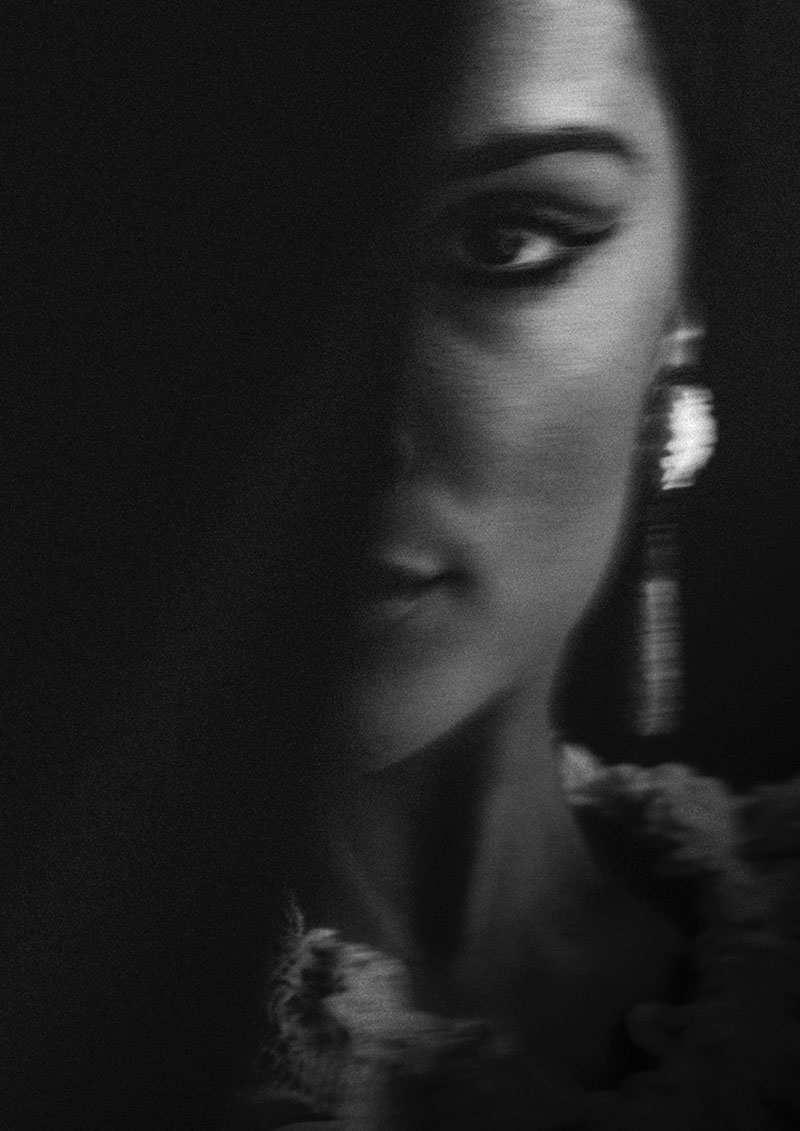
Free admission until full capacity is reached
Tuesday 13 June - Sunday 23 June. Civivox Condestable / Museum of Navarre
The artistic programming is another vision parallel to the cinematographic at Filmmaking for Social Change. Each year we invite a series of artists to give their free vision about the theme.
